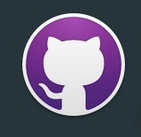| GitHub Octoverse Surveys Developer Productivity |
| Wednesday, 24 November 2021 |
|
Findings from GitHub's annual State of the Octoverse report indicate that post pandemic only a minority of developers expect to work in an office location. The report also looks at what makes developers and teams perform better, be more productive, and have a great developer experience. In order to identify current trends among software development companies and open-source projects, GitHub State of the Octoverse 2021 combines telemetry data from over 4 million repositories with a survey of over 12,000 developers. It presents some pretty impressive numbers:
The question unique to 2020 concerns the shift in where developers work as shown in this chart: Pre-pandemic over 40% of survey respondents were "Collocated" with their team members in an office setting. Just over a quarter of them expect this arrangement post-pandemic. The incidence of a "Hybrid" pattern, where some team members work in an office while others are remote was already almost 30% and this is the mode that is expected to predominate in future affecting approaching half of respondents. Remote working is set to be more prevalent, seeing a 50% increase over its pre-pandemic level of over a quarter to nearly 40%. The report addresses three main issues concerning productivity and performance and its impact on the developer experience. The first of these is about writing and shipping code faster and concludes that automation is the key to such improvement. The report states: By removing friction and repetitive tasks through automation, teams perform 27% better in open source and 43% better at work, and developers report higher fulfillment. The data reveals that: Once large repositories start using Actions, teams merge almost 2x more pull requests per day than before (61% increase) and they merge 31% faster. Across all open source repositories, using Actions increases the number of merged pull requests by 36% and shrinks the time to merge by 33%. The second issue is documentation with the report noting that: In both open source projects and enterprises, developers see about 50% productivity boost with easy-to-source documentation. It pays particular attention to the role of READMEs, noting that while they are very widely used in open source projects the reverse is true of Enterprise projects: The report offers the advice: Sharing information through READMEs, contribution guidelines, and issues are open source projects’ secret sauce: they invite new contributors and make developers 55% more productive. Enterprises can adopt these best practices to support their teams’ work and jump start inner source initiatives. The third section of the report is concerned with sustainable communities. It has the following breakdown of where survey respondents contribute code:
Noting that there were 1.4 million new contributors to open source this year it considers mentorship as a factor that promotes both productivity and the formation of healthy sustainable communities: Explicitly providing mentorship almost triples the chances of an open source team having a healthy culture, as well as contributors feeling they belong in the community and identifying with the work they do. For teams at work, mentorship almost doubles the likelihood of a strong culture. Codes of conduct, which are increasingly being adopted by both open source and enterprise projects with more than 1000 contributors, are considered to enhance trust and act as a signal of a safe and welcoming community. According to the report it these signals that attract more contributors, create a stronger sense of belonging and fulfillment, and help developers make progress on their work. .
More InformationThe 2021 State of the Octoverse Related ArticlesGitHub Octoverse Reveals The State Of Open Source The Ever Expanding GitHub Octoverse GitHub Announces Improvements At Universe 2021 Microsoft GitHub - What's Different The Importance of Open Source Contributions Taking Open Source Criticality Seriously To be informed about new articles on I Programmer, sign up for our weekly newsletter, subscribe to the RSS feed and follow us on Twitter, Facebook or Linkedin.
Comments
or email your comment to: comments@i-programmer.info |
| Last Updated ( Wednesday, 24 November 2021 ) |




